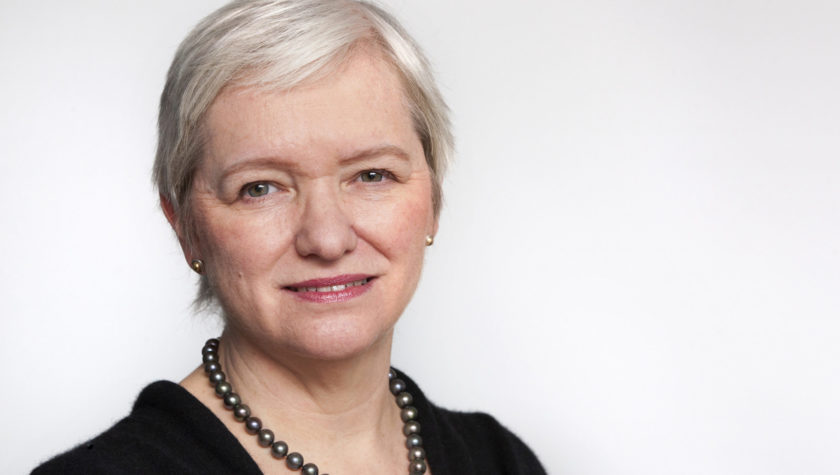The advent of connected and autonomous vehicles (CAVs) will revolutionise how we think about and use the roads and motorways that criss-cross our country – and I’m delighted that the brightest and best of the British infrastructure industry have turned their minds to the challenge that poses, through our Roads for the Future competition.
Launched in January, the competition sought ideas for how roads should change to make the most of new driverless cars. This was no mean feat – after all, CAV technology is still being developed and there is a long road of trials and research ahead.
To most people, the concept of driverless cars still seems like something out of science fiction, and the concept of how our roads will have to change in preparation for their introduction probably never crosses their minds. But we cannot afford for the technology of our roads to be left behind as vehicle technology is transformed in this way.
My fellow jurors and I were delighted by the number and quality of responses, from major engineering consultancies to academics, technology start-ups to local authorities, professional bodies to trade associations. They offered further proof – as if it were needed – that the UK’s transport sector is excited and ready to step up and provide solutions to this infrastructure challenge.
Entries came in from all over the country. I was particularly impressed by the breadth of the practical ideas that were put forward, whether that was smart traffic lights, designated lanes on motorways, or predicting how pedestrians would have to interact with this new technology. Each entrant had thought about every element of the challenge – something that impressed us as we judged their ideas.
Given that, shortlisting just five entries was a difficult task. But I think the five that we’ve selected – from AECOM, Arup, City Science, Immense and Leeds City Council – represent the most promising ideas, each with project plans that understood the need for a long-term vision combined with proposals that were deliverable in the near future.
Crucially, that reflects our approach at the National Infrastructure Commission, as we consider the UK’s likely infrastructure needs up to 2050: offering tangible things we can do today to deliver the Britain of the future we want.
The shortlist offers a diverse range of ideas applicable to motorways and urban streets.
‘Smart’ traffic lights, for example. One entry envisages lights that influence vehicle speed approaching junctions, reducing polluting ‘stop-go’ driving, while another proposes using data created by CAVs to improve traffic light systems. Artificial intelligence could optimise route planning for fleets of CAVs. Intelligent, flexible kerb sides that adapt throughout the day to meet demand, and designated lanes to safely integrate CAVs with existing vehicles, complete the picture.
Each shortlisted entry will now receive £30,000 to develop their idea further and my fellow jurors and I look forward to seeing the fruits of their labours.
I’m also pleased that we’re also helping a further four entries that weren’t shortlisted – from Vivacity Labs, Urban Foresight, Zeta Specialist Lighting and The Floow – to find funding for their ideas separately from the competition. And we’re grateful to Highways England and Innovate UK for their expertise and organisation in creating a great competition.
What’s clear to me from this process is there’s an appetite from industry to rethink our roads. But, Government also needs to play its part. Once the competition ends, we will be pressing Ministers to make sure the great ideas and opportunities generated are not lost.
This is only the beginning of the journey, and we will undoubtedly need to recalculate our route at various points as new developments with the technology occur. But with a robust approach we can navigate successfully towards a road network fit for driverless cars, which the country can be proud of.
Bridget Rosewell is a Commissioner with the National Infrastructure Commission and is chair of the Roads for the Future competition jury.




